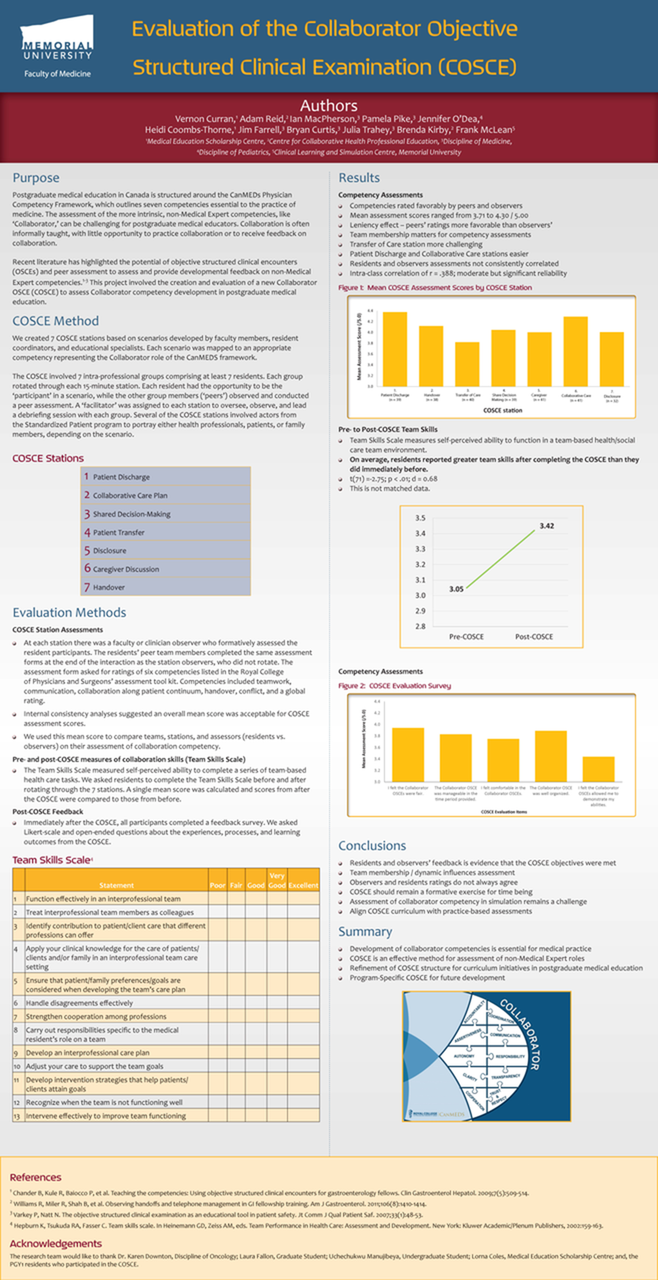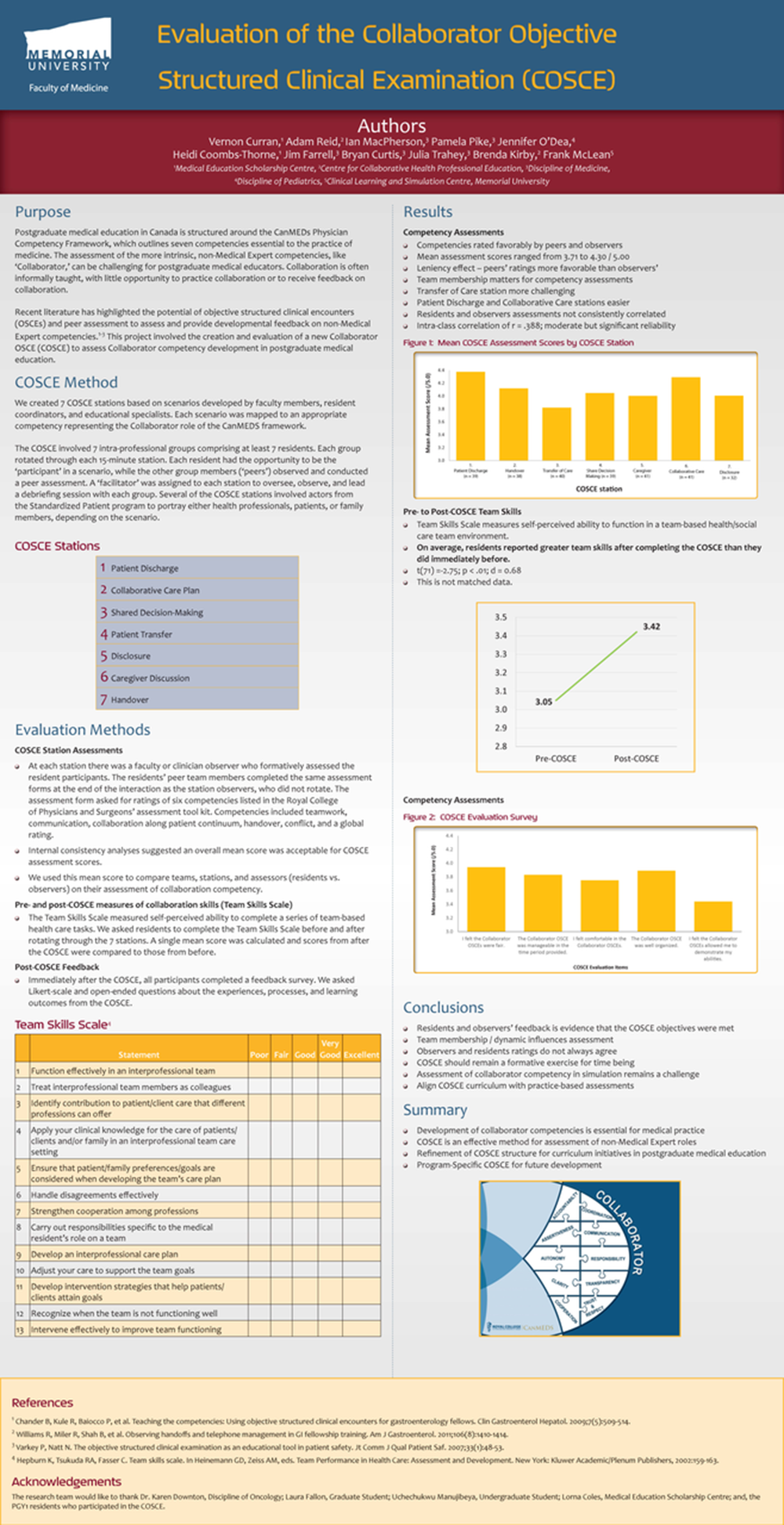Abstract
Purpose: Postgraduate medical education in Canada is structured around the CanMEDs Physician Competency Framework, which outlines seven competencies essential to the practice of medicine. The assessment of non-Medical Expert competencies, like ‘Collaborator,’ can be challenging for postgraduate medical educators. Recent literature has highlighted the potential of objective structured clinical examinations (OSCEs) and peer assessment to assess and provide developmental feedback on non-Medical Expert competencies. This project involved the creation and evaluation of a new Collaborator OSCE (COSCE) to assess Collaborator competency development in postgraduate medical education.
Method: The COSCE involved 7 stations mapped to the CanMEDSs Collaborator competencies, including: Patient Discharge; Handover; Transfer of Care; Shared Decision-Making; Caregiver; Collaborative Care Plan; and Disclosure. PGY1 residents rotated in small groups through each station, with each resident expected to demonstrate collaborator competency development in at least one station. Evaluation of the COSCE encompassed a mixed-methods design including a pre- and post-test of self-reported team skills development, faculty and peer assessment using a standardized rubric, a resident satisfaction survey, and an evaluation survey of faculty observers and standardized patients.
Results: The Team Skills Scale measured the self-perceived ability to function in a team-based health/social care environment. The results of the COSCE demonstrated a clear increase in self-perceived team skills among residents, from 3.05 to 3.42 (t(71) =-2.75; p < .01). According to their formative assessment results, residents’ performed well in the stations and the learning objectives for the COSCE were met. Inter-rater agreement between resident peers and faculty observers was moderate overall, but inconsistent and the structure of this COSCE impeded a strong estimate of reliability.
Conclusions: Non-Medical Expert or "intuitive" competencies, like Collaborator, are essential for medical practice. The COSCE is a valuable formative exercise for first-year residents and can assist medical educators with assessing the inter-professional skills of residents.






